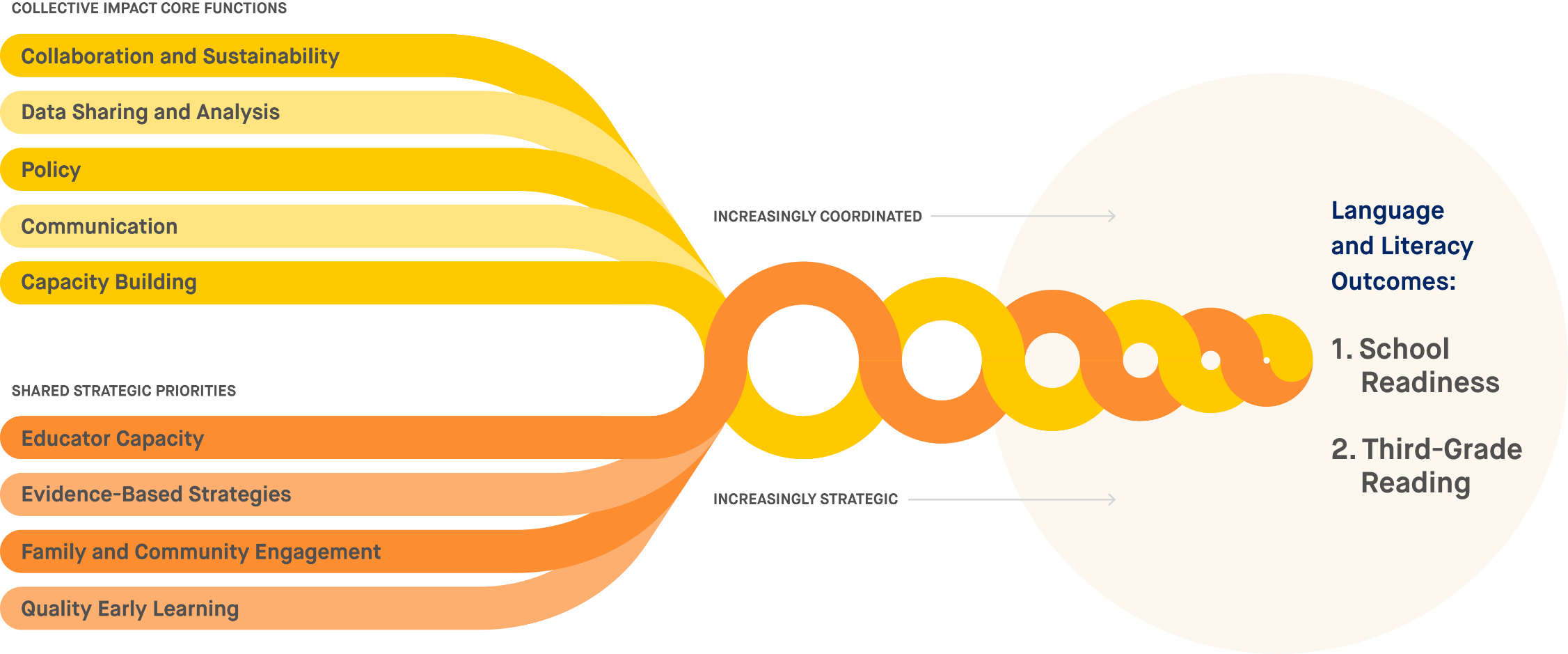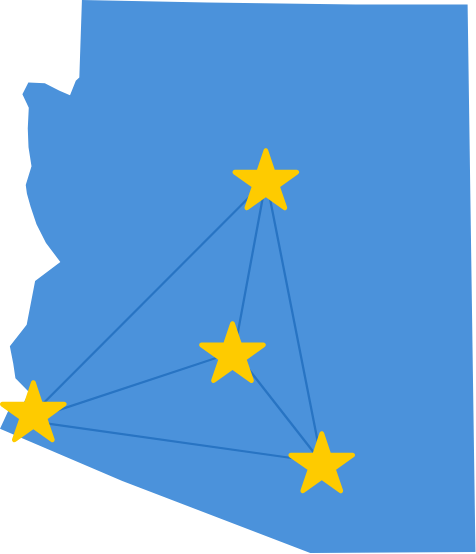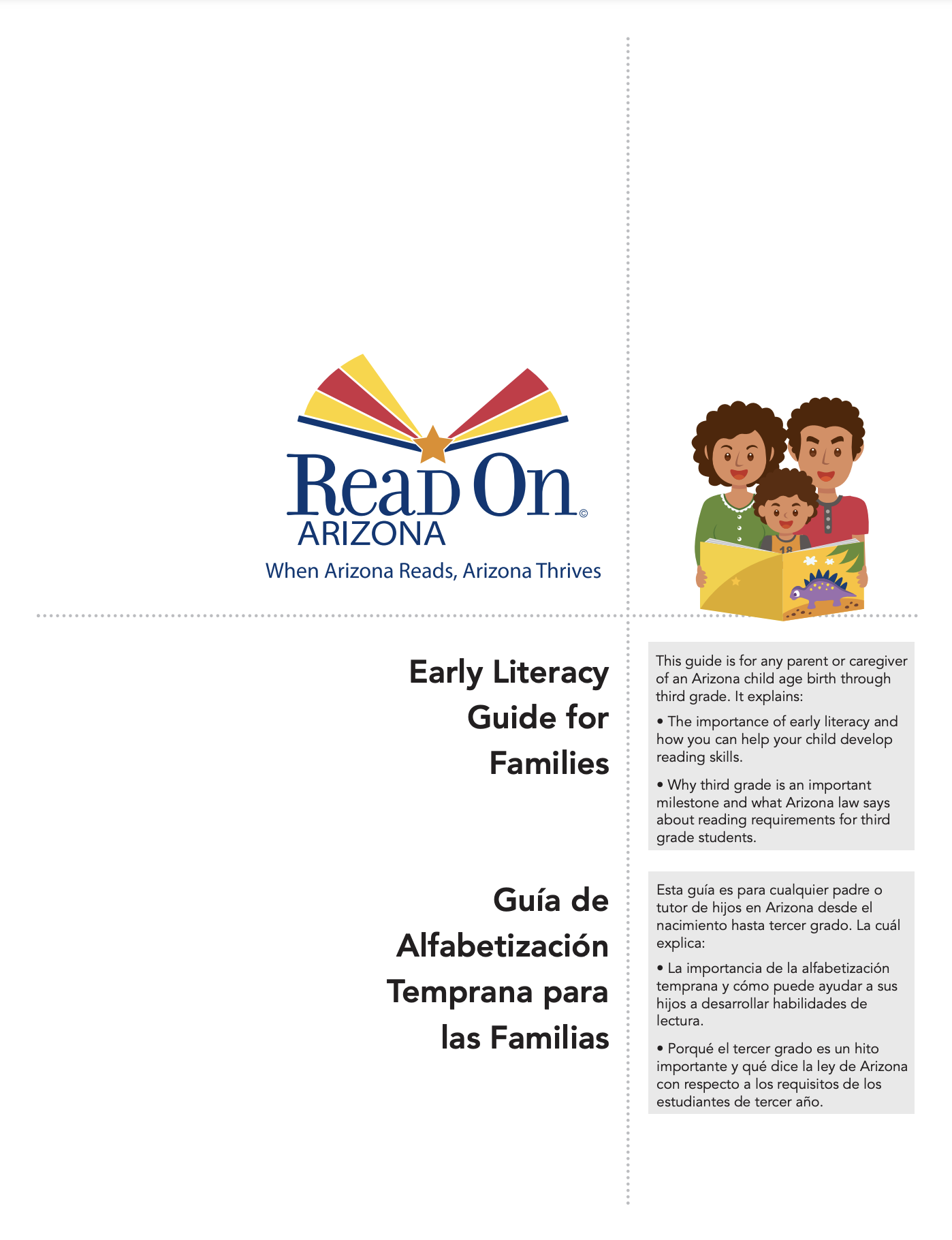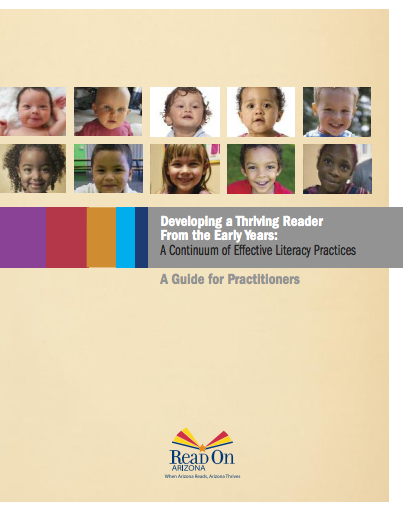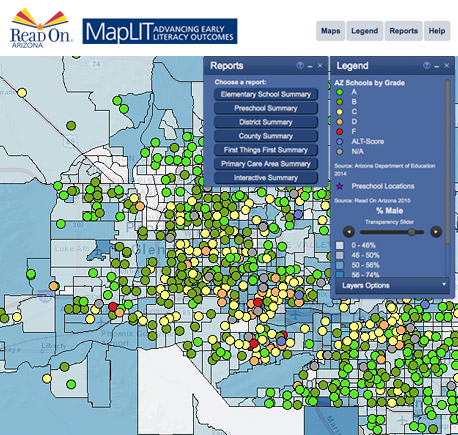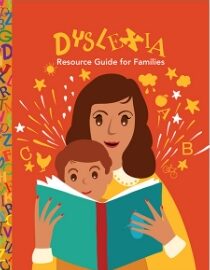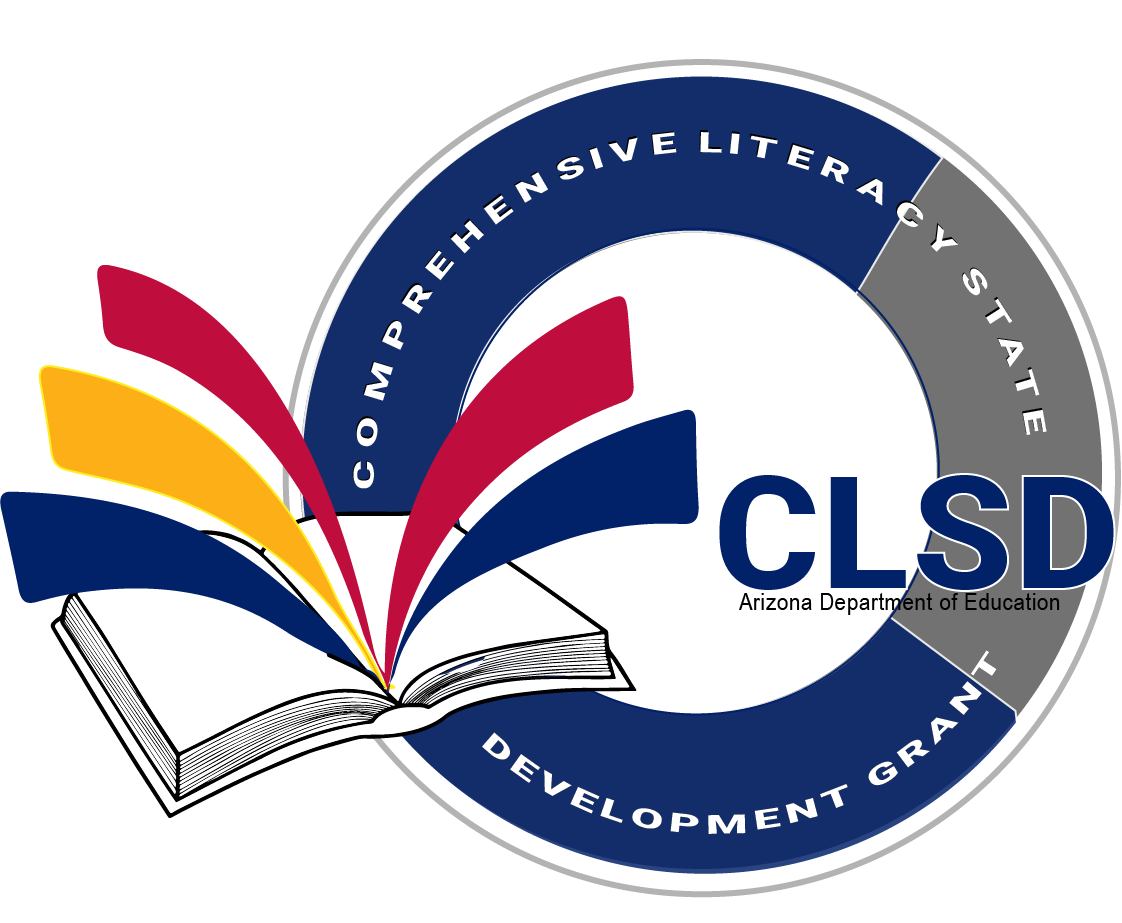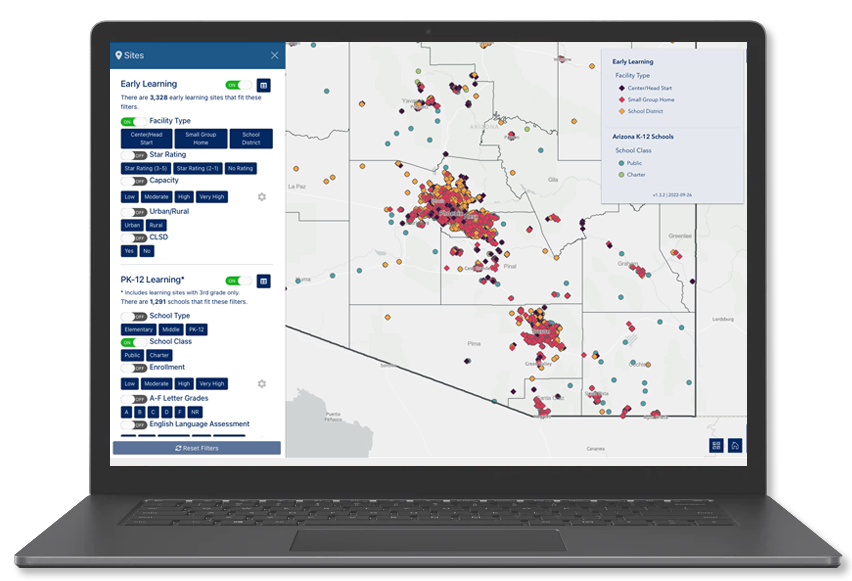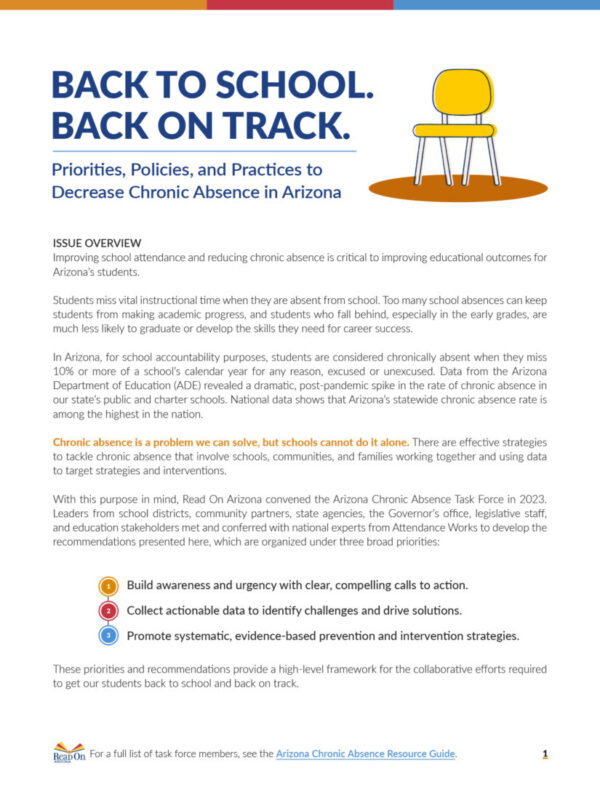

Read On Arizona was launched in 2013 from the urgent, fervent belief that Arizona had to do more to help our young children develop the literacy skills they need to be proficient readers and successful in school. And that working together is the way to do it.
Our founding partners understood from the beginning that progress is made incrementally, with no quick fixes or magical solutions. Ten years later, our collaborative efforts have transformed the literacy landscape in Arizona.
Milestones
Statewide and local.

The Read On Arizona collaboration provides leadership at the state level through an advisory board consisting of representatives of our founding partners — Arizona Department of Education, Arizona Community Foundation, First Things First, Helios Education Foundation, and Virginia G. Piper Charitable Trust — as well as the Arizona State Board of Education, the Governor’s Office and several other key literacy stakeholders and philanthropic organizations.
Read On Arizona also supports local literacy efforts through a network of Read On Communities. Each works with a wide array of local stakeholders, including schools and school districts, local governments, early learning programs, businesses, faith communities, and non-profit organizations working directly with families. Each applies the same strategic approaches of the statewide Read On Arizona collaboration to coordinate and maximize their collective efforts in their local community.
Core Functions
Read On Arizona brings partner organizations together to produce results far greater than the sum of each acting alone. As the backbone of Arizona’s collaborative early literacy initiative, Read On Arizona guides the core functions of our shared work, in alignment with shared strategic priorities, to drive improved language and literacy outcomes in our state.
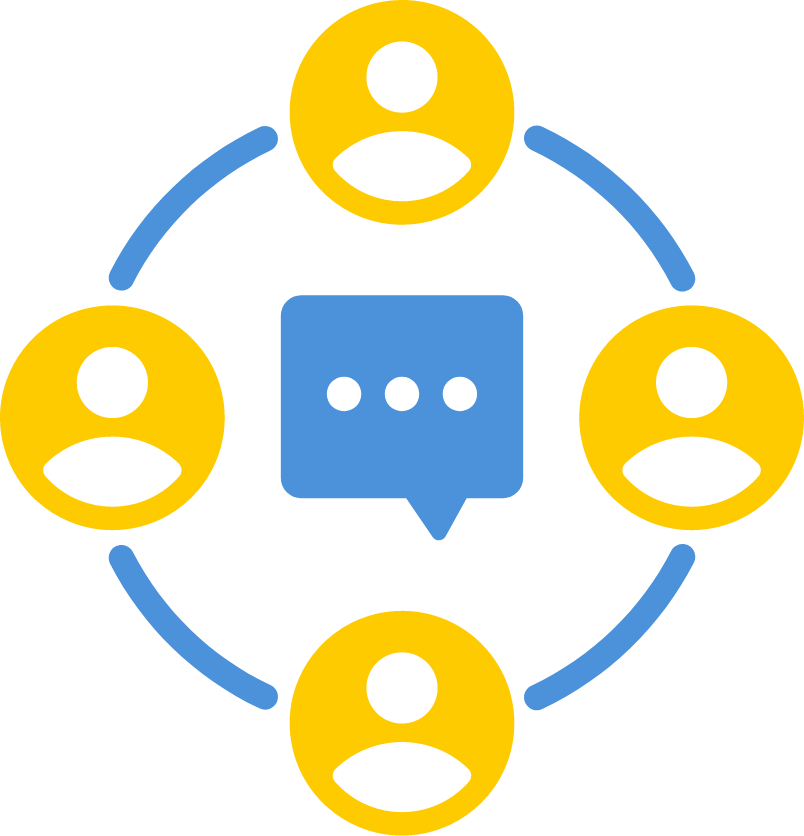
-
Collaboration and sustainability
-
Data sharing and analysis
-
Policy
-
Communication
-
Capacity Building
The ongoing commitment of state and local partners to work collectively, in alignment with shared goals, measures, strategies and investments, is key to driving long-term, large-scale improvement in third grade reading outcomes.
Comprehensive data and effective data analysis should inform strategies, identify gaps and trends, and drive instructional decisions at all levels, from state to student.
Meaningful change is driven by a shared policy agenda for early literacy.
Consistent messaging around early literacy priorities is needed to raise awareness and fuel collaboration among partners, practitioners, communities and families.
Literacy expertise and technical assistance supports partners in operating more efficiently and effectively; and leveraging collaboration around shared funding opportunities brings additional literacy resources to our state.
Coordinated and Strategic
Like the many strands of skilled reading, the core functions of Read On Arizona interconnect with our shared strategic priorities in a comprehensive approach to improve language and literacy outcomes.
